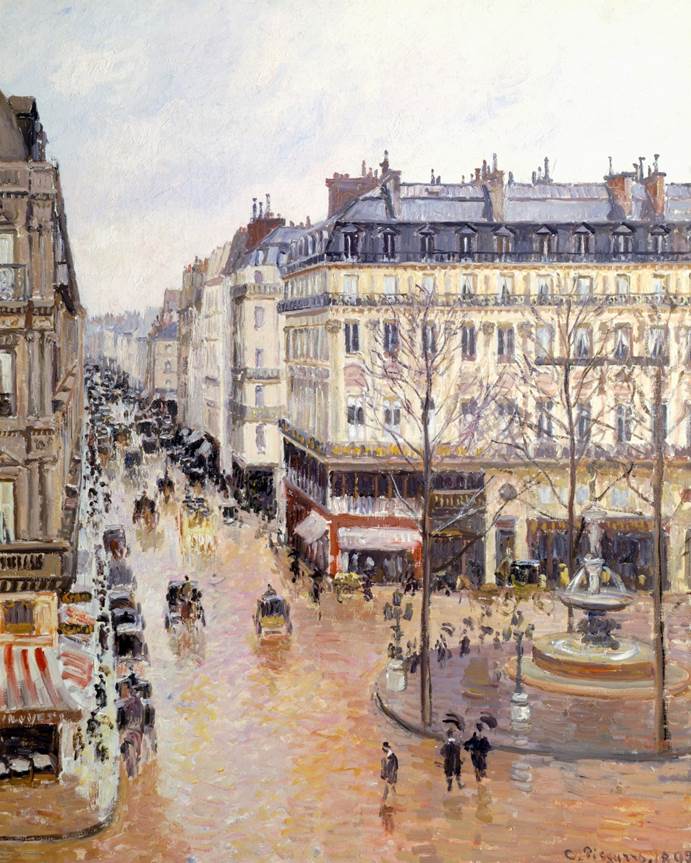Late Tuesday evening—the day after Memorial Day no less—the United States Office of the Solicitor General filed a brief amicus curiae in our clients’ pending case against the Federal Republic of Germany and the Stiftung Preussischer Kulturbesitz for restitution of the Guelph Treasure (in German, the Welfenschatz). This brief was in response to the Supreme Court’s invitation in January that the SG file a brief expressing the views of the United States. In an unprecedented abdication of 80 years of leadership redressing Nazi-looted art, the Solicitor General argued that there is no circumstance in which a Nazi-forced sale victimizing a German Jew in the 1930s could constitute a violation of international law such the Foreign Sovereign Immunities Act would confer jurisdiction over either Germany or the SPK. The U.S. government has taken the position that only property claims against non-Germans suffice—even though, of course, the U.S. government has acknowledged in every relevant context since the early 1940s that Jews ceased to be full members of German society on the day Hitler assumed power: January 30, 1933. This is an historic disgrace. Germany has rightly been shamed for minimizing in court over the last five years the genocidal character of its persecution against Jews, but for the United States to do so the day after we rightly honored the hundreds of thousands of Americans who died to defeat Nazi Germany is appalling.
U.S. Solicitor General’s Office Advocates Broad Impunity for Nazi Art Thefts
Topics: Monuments Men, Foreign Sovereign Immunities Act, Washington Conference on Holocaust Era Assets, Supreme Court, Holocaust Victims Redress Act, Stiftung Preussischer Kulturbesitz, Hermann Goering, FSIA, Monuments Fine Arts and Archives Program, Washington Principles, Federal Republic of Germany, Welfenschatz, Military Government Law 59, Holocaust Expropriated Art Recovery Act, HEAR Act, Wannsee Conference, D.C. Circuit, Military Government Law No. 59, london declaration
Thyssen-Bornemisza Prevails Over Cassirer Heirs' Claim to Pissarro Taken by Nazis Despite Acts “Inconsistent with the Washington Principles”
One of the longest-running court cases in the United States about art looted by the Nazis has been decided in favor of the current possessor, the Thyssen-Bornemisza Museum in Madrid, an instrumentality of the Kingdom of Spain. The U.S. District Court in Los Angeles ruled on April 30, 2019 against the heirs of Lilly Cassirer, a German Jew whom the Nazis targeted in 1939 for a forced sale of Rue Saint–Honoré, après-midi, effect de pluie (1892). The ruling is the second time that the museum has prevailed in the District Court as the owner of the painting under Spanish law, now on the grounds the museum did not know of the painting’s looting history when it acquired the work and that it held the work publicly for long enough to become its owner even though it had been stolen. The ruling, while favorable to the museum in this case, confirms important principles about the inability of successive possessors to acquire good title to artworks stolen by the Nazis, and the importance of diligence and pursuing questions raised by red flags in the chain of title. Notable as well was the Court’s pointed criticism of Spain for failing to adhere to the spirit of the Washington Principles on Nazi-Confiscated Art, and Spain’s failure to “comply with its moral commitments.”
Topics: Walter Feilchenfeldt, Third Reich, Terezin Declaration, Gestapo, Lilly Cassirer, Claude Cassirer, Jacques Goudstikker, Nazi-looted art, Czechoslovakia, Spain, Washington Principles, Baron Hans-Heinrich Thyssen- Bornemisza, A Tragic Fate, Law and Ethics in the Battle Over Nazi-Looted Art, Reichskammer der bildenden Künste, flight taxes, Rue Saint–Honoré, Julius Cassirer, Paul Durand-Ruel, Ludwigstrasse, Dr. Cassirer and Co. Kabelwerke, Jakob Scheidwimmer, Sydney Schoenberg, Hahn Gallery, Thyssen-Bornemisza Museum, Military Government Law No. 59, Reich Chamber of the Visual Arts, Ari Walter Kampf, Eugen Kampf, Knoedler & Co. Gallery, encubridor




